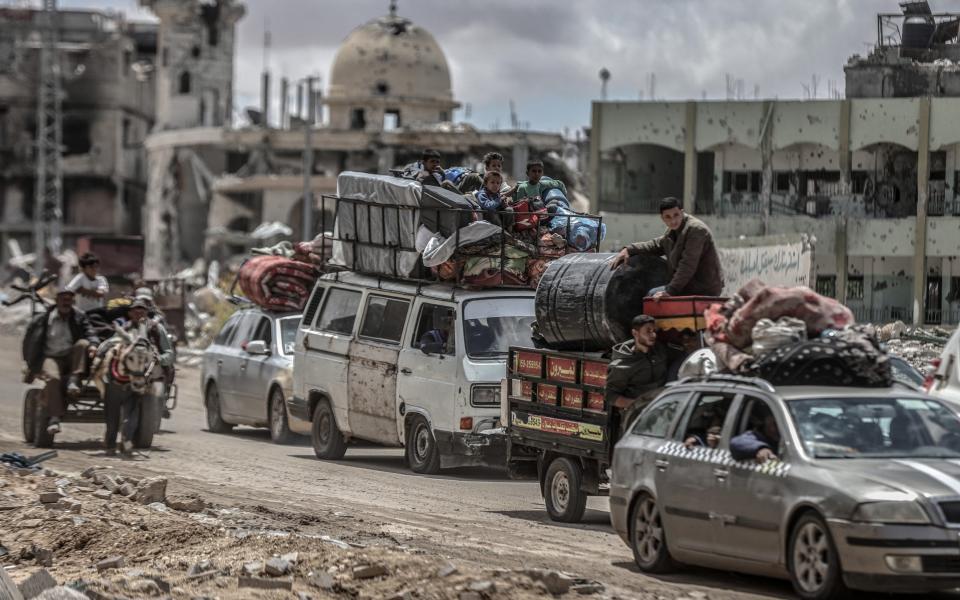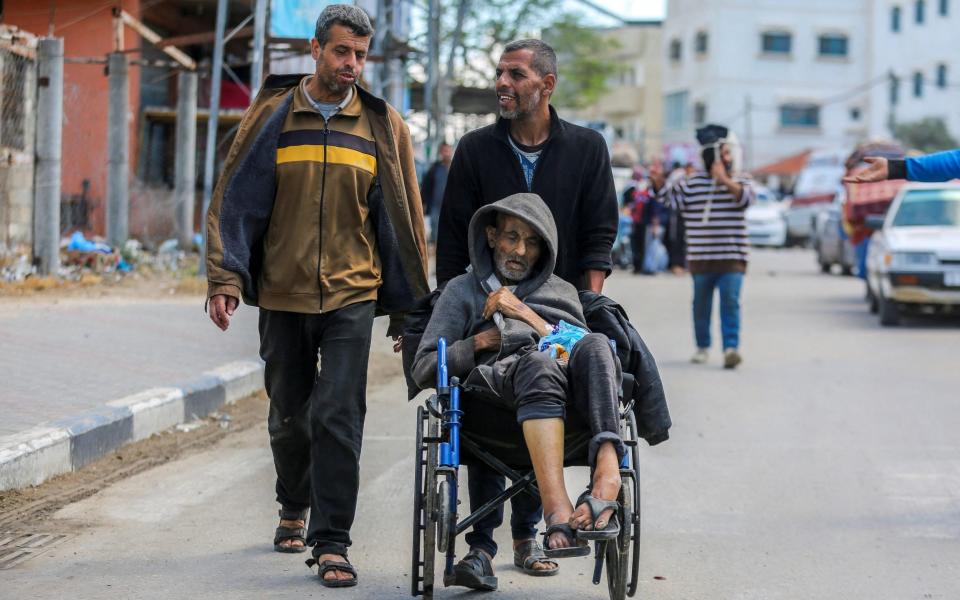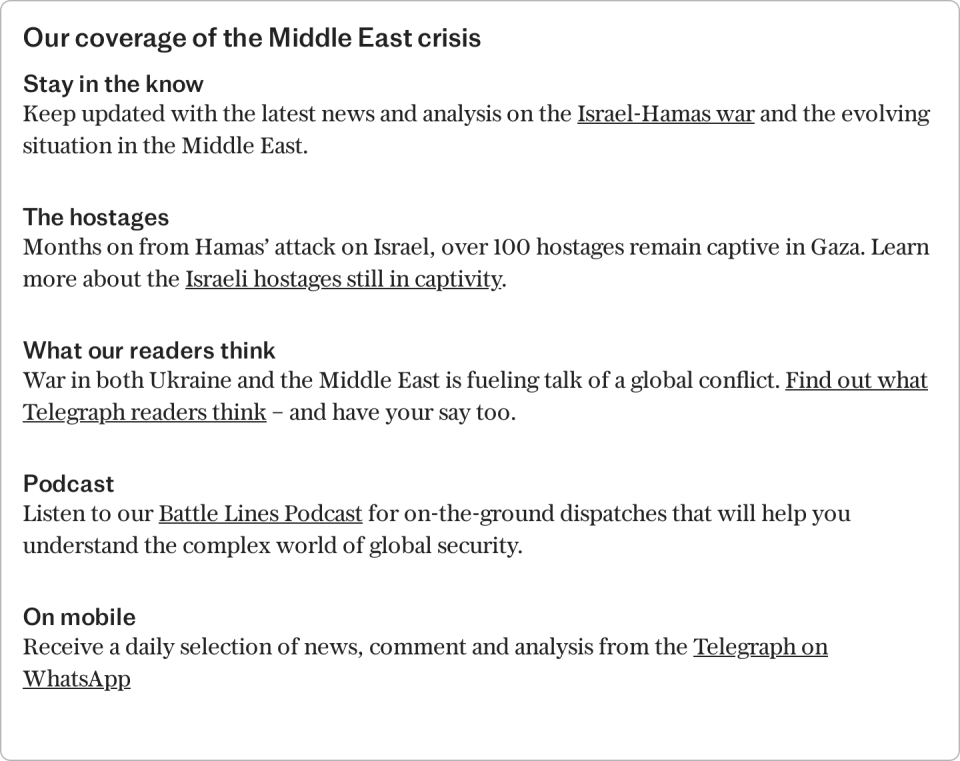Why Israel wants to invade Rafah and how it plans to evacuate civilians
Israel called for the evacuation of Palestinians from eastern Rafah on Monday in the clearest sign yet that it is preparing to invade the southern Gaza city.
Rafah, where some 1.3 million Palestinians are believed to be sheltering, has so far been mostly spared from attack in the seven-month conflict between Israel and Hamas.
Israel’s closest allies, including the United States and Britain, have urged it to call off the operation to avoid further civilian casualties.
Aid organisations have warned that any operation would do major damage to Gaza’s last remaining infrastructure, with a high loss of life “inevitable”.
Hopes had been high that negotiations for another hostage deal would save the city from invasion, but Benjamin Netanyahu, the Israeli prime minister, has vowed to send ground troops regardless of any truce.
Why does the IDF want to go into Rafah?
When it first launched its military operation in Gaza, the Israeli government declared the eradication of Hamas as one of its primary goals.
In recent months, Israeli officials have insisted that, while Rafah provides a rare relatively safe haven for civilians, it also provides shelter for four Hamas battalions that are reportedly intact – unlike most other Hamas units in the rest of the enclave, which appear to have disintegrated.
In the initial months of fighting, Hamas forces were launching daily barrages of rockets into Israel. Now, the rocket threat from Gaza is largely gone, and officials have begun talking about allowing Israelis to return home to the southern communities bordering Gaza.
But Sunday’s deadly shelling on Gaza’s border, reportedly launched from Rafah, has bolstered the government’s view that the Hamas threat has not been eliminated.
A growing number of military analysts and Israeli politicians and commentators, however, argue that Israel has already crushed organised resistance across Gaza, and that an invasion of Rafah will not bring any strategic gain, but will be likely to lead to high casualties among Palestinians as well as IDF troops.

What are the plans to evacuate citizens?
Israel has been assuring the US, its main ally, that it will not launch the invasion before preparations are made for evacuating Palestinian civilians from Rafah.
In recent weeks, several tent cities were seen appearing in central Gaza to accommodate the displaced people.
It is not clear, however, how Israel is going to accommodate the 1.3 million people currently living in Rafah. Moving them to their homes in the north is not an option, as large swathes of the region have been flattened, with the most basic infrastructure, such as hospitals and water pipes, destroyed.
Officials in the US and Egypt were briefed on the preparations last month, but did not indicate that they viewed the plans as feasible.
What is the US view of the invasion?
The Biden administration has repeatedly said it opposes the invasion of Rafah as a reckless operation likely to cause high civilian losses and a further deterioration of the humanitarian situation in Gaza.
However, Lloyd Austin, the US secretary of defence, stopped short of opposing the Israeli plans outright, but insisted that any military operation in the city would need to include a “credible plan to evacuate Palestinian civilians”.
In an apparent last-ditch attempt to stave off the assault, Joe Biden, the US president, was scheduled to talk to Mr Netanyahu later on Monday.

How did ceasefire talks collapse?
The US made it clear last weekend that Hamas was the only stumbling block to a ceasefire deal, as Israel had reportedly agreed to a proposal that would offer several stages of prisoner exchange and a prolonged ceasefire.
But it became clear on Saturday that Hamas had been spooked by Mr Netanyahu’s bellicose rhetoric after he insisted the IDF would be going to go into Rafah whether or not a deal was done.
Mr Netanyahu’s office on Monday denied widespread reports that his stance had pushed Hamas to harden its outlook and drive the talks into a stalemate.
Separately, Hamas’s attack on Israeli troops at the border is also believed to have persuaded Israel to go ahead with the plans for the assault.


 Yahoo News
Yahoo News 
